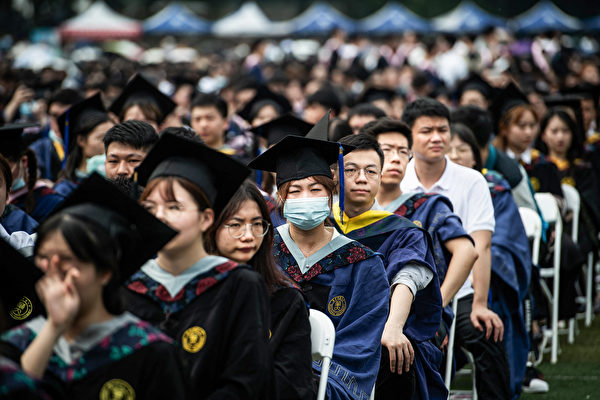China’s youth unemployment rate continues to rise, with a record 11.79 million college graduates seeking job opportunities in a tough job market, leading to more and more young Chinese feeling pessimistic about their prospects. They face difficult choices: accepting low-paying jobs, relying on parents to live as “freeloaders,” or simply “lying flat.”
According to a report by the South China Morning Post on October 5th, Peter Li, a software developer in Shenzhen, was laid off by a leading internet company last month, marking his first job after graduating from university. The reason cited was his failure to meet department performance targets.
24-year-old Peter Li has become one of the many young victims in China’s increasingly challenging job market. Faced with uncertainty about his next job, he mentioned that he may need to lower his expectations in terms of salary and work-life balance.
Peter graduated in the summer of 2022 and expressed, “I do think the economy is really bad. My classmates who continue to pursue master’s degrees find it harder to find jobs now than when they graduated with their bachelor’s degrees.”
On September 20, official data released by the National Bureau of Statistics of China showed that in August, the unemployment rate for non-enrolled students aged 16 to 24 rose to 18.8%, surpassing July’s 17.1% and June’s 13.2%, reaching a historic high.
The increasing difficulty in job hunting is not solely due to the surge in the number of recent graduates. Since the lifting of pandemic restrictions, the Chinese economy has been struggling, impacting youth employment even more severely than the overall situation. In recent years, industries such as technology, internet, and tutoring in China have employed many young people, but due to government crackdowns, these companies are struggling to sustain themselves and have significantly reduced their hiring.
A survey by the recruitment website 51job.com found that less than 30% of companies are hiring as many new graduates as they did last year, primarily due to cost-cutting measures.
Similar to Peter Li, Bai Xiong, a 24-year-old video producer from Yunnan Province, was also laid off at the end of last month. He voiced dissatisfaction with the current economic situation, saying, “Of course, I am not satisfied with the current economic situation because I can’t earn much.”
Bai Xiong mentioned that his employer suddenly gave him a choice: either take a 25% pay cut or be laid off, to which he opted for the latter. He noted that while he may seek another job to support his family, many companies are becoming more financially conservative to reduce costs.
Many industries that provide entry-level positions for recent graduates have suffered losses, exacerbating the economic woes in China. The real estate sector remains in a crisis, with falling property prices and developers facing difficulties. This industry used to employ many freshly graduated real estate agents who would take clients around the city, showcasing multiple properties for sale in a day.
Last year, several former real estate agents from a leading brokerage firm informed Bloomberg that they and many young colleagues chose to leave the company due to dwindling sales, making it unsustainable for them after sharing commissions with the company.
Even for young people who have managed to secure jobs in such a challenging job market, the situation is not without its pains. High unemployment rates give employers leverage, often leading them to make young employees work long hours as companies can easily replace those willing to work hard.
Chinese social media platforms have coined numerous terms to describe the predicament faced by the youth, including “lying flat” to avoid overwork, “slacking off,” and even some young individuals becoming “freeloaders,” living off their parents without employment. These terms reflect the pessimism among Chinese youth about their future prospects.
Some young people are sharing experiences of their “retired” life in the countryside, having been laid off, resigned, or simply without a job. These “retirees,” born in the 1990s or 2000s, have begun to take extended breaks or find themselves unemployed at a young age.
Zhang Zhiwei, Chief Economist at Beoyin Investments, told the South China Morning Post that the high unemployment rate is a key reason for the low consumer confidence, as people feel the need to save more money and worry about job security.
A mainland political analyst told the South China Morning Post that historically, youth unemployment has been a crucial factor in Chinese revolutions, student movements, and crime rates. Due to the sensitivity of the matter, the analyst requested anonymity.
“Youth unemployment is a significant indicator of social and economic development and future prospects. If not handled properly, it will lead to various societal issues,” the analyst said.
The analyst pointed out that economic decline has influenced the thoughts of students and parents, leading to the generation of negative emotions and a belief that there is no future in society.
Additionally, some students have lost interest in studying, deeming it useless.
Yun Zhou, Assistant Professor of Sociology at the University of Michigan, told Reuters, “For many Chinese university graduates, the promise of better job prospects, higher social mobility, and a brighter future that came with a university degree has become increasingly out of reach.”

